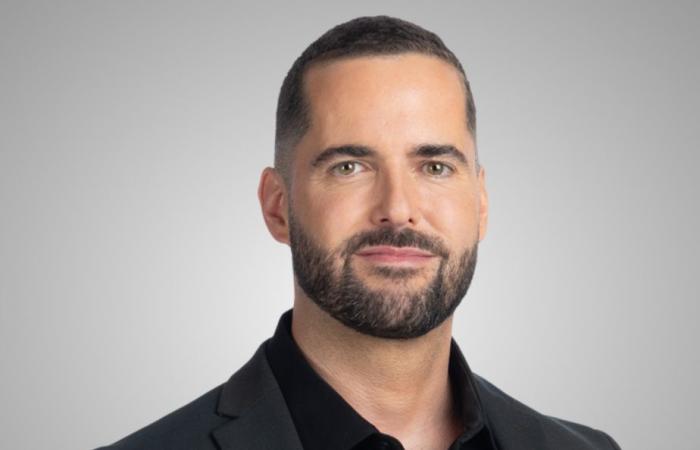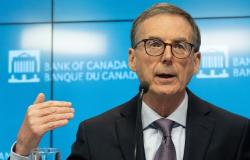A gun to the head and one knee on the ground.
Published at 6:00 a.m.
The image is strong, but it is the position in which Canada finds itself, a month and a half away from the arrival of Donald Trump at the White House.
We have heard it loud and clear: the president-elect plans to impose tariffs of 25% on all Canadian exports, as soon as he takes office.
This threat remains relevant for Ottawa.
But since Monday, Justin Trudeau’s government has also had to juggle its implosion live. A major political crisis which overlaps with an imminent tariff war.
This does not bode well for the future.
By slamming the door with a bang on Monday, just before tabling her budget update, Finance Minister Chrystia Freeland revealed her deep disagreement with several of Justin Trudeau’s policies.
She finds the Prime Minister too spendthrift, which is obvious. But she also mentioned this in her resignation letter: the “Team Canada response” to Trump’s threats does not seem ready. These should be taken “seriously”.
This is very worrying. Because Freeland, despite several faults, knows what she is talking about in this matter.
I had the chance, or at least the opportunity, to witness the first tariff spat between Canada and the United States, during Trump’s initial mandate.
The president forced a renegotiation of the North American Free Trade Agreement (NAFTA), in force since 1994.
Fist on the table, he decried it as “the worst trade agreement of all time”.
So parliamentary correspondent for The PressI was able to document this endless negotiation between Washington, Ottawa and Mexico. The talks lasted 14 months.
Fourteen months of acrimonious discussions, sharp outings from President Trump and hard-fought compromises. All this work ultimately culminated in a new agreement: the United States–Mexico–Canada Agreement (USMCA).
It was 2018. Centuries ago, it seems.
The context, although tense, had little to do with today. The Trudeau government was still young and vigorous. United. Chrystia Freeland, then at Foreign Affairs, had succeeded in assembling a real “Team Canada”, which spoke with one voice in front of the American juggernaut.
Donald Trump begins his second term with a much more vengeful tone than at the time. Even more protectionist.
His interlocutor in Ottawa, the minority government of Justin Trudeau, is on borrowed time. Unstructured.
Trump poses two threats to his immediate neighbors, Canada and Mexico.
The most distant is the renegotiation of the USMCA, in 2026. The most pressing: these famous tariffs of 25% on all their exports to the United States, from next month. That is unless the two countries waterproof their borders to stop the flow of migration and the trafficking of hard drugs.
Big order…
The latest economic statement prepared by Chrystia Freeland offers a timid response to the request – or rather the injunction – of Donald Trump.
Ottawa will invest 1.3 billion over five years to secure its borders, we learned Monday. Two hundred million and dust every year.
That doesn’t seem like much, considering the scale of the threat.
Minister Dominic LeBlanc, close to Justin Trudeau, will replace Freeland at Finance. This can be seen as an encouraging sign. He is known for his interpersonal skills and has already visited Donald Trump’s Florida residence with the Prime Minister at the end of November. A start of a relationship with his American counterparts.
LeBlanc will play a leading role in future talks with Washington over tariffs. An asset for Ottawa, no doubt, especially since Chrystia Freeland irritated the American president to the highest degree. He also welcomed the resignation of the minister with “toxic” behavior late Monday evening on social networks.
The fact remains that the Canadian response to Trump’s threats is still unclear. The game plan – and composition – of the future “Team Canada” remains unknown.
Above all: the government in charge in Ottawa is likely to be defeated within a few months, according to all the polls… A new conservative team should take over, which suggests a period of uncertainty.
All this is anxiety-provoking, both for exporters and for consumers who could see the prices of several goods explode. A climate of extreme tension with Trump style.
I discussed it with the former Liberal Minister of Finance Raymond Bachand. He acted as chief negotiator for Quebec during the renegotiation of NAFTA.
Mr. Bachand is not overly concerned about the impact of the crisis in Ottawa on future negotiations with Washington.
In 2017 and 2018, he recalls, the bulk of the discussions and lobbying were done by the vast coalition of “Team Canada”, made up of elected officials, yes, but also chambers of commerce, unions, provincial representatives and senior officials.
It will be urgent to assemble a new strong negotiating team, he emphasizes. And then, like in a hockey game, to go period by period. By prioritizing the first and most pressing: the Trump administration’s appeasement of border security.
Very good.
But to stick with the sports analogy, Canada starts the match with several fewer players. And a captain injured in the upper body.






